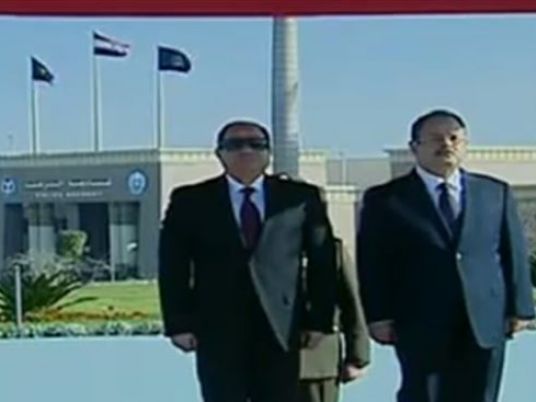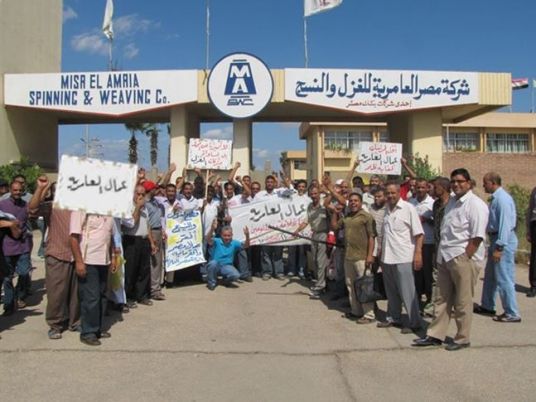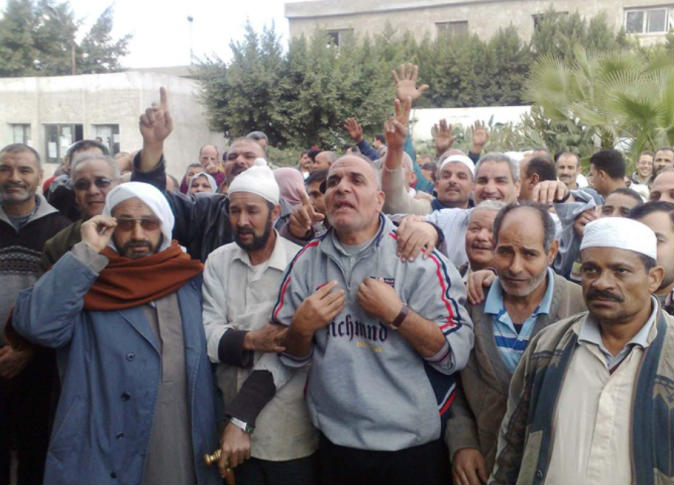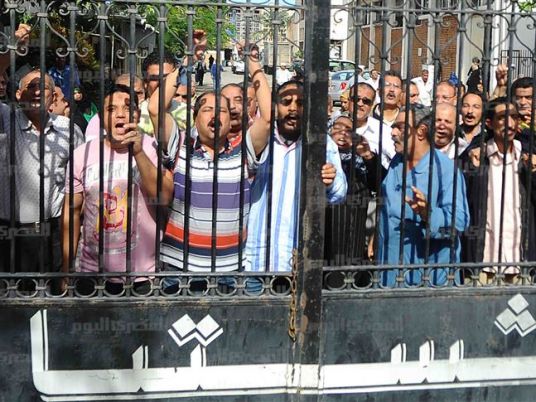Sweeping protests in Cairo and beyond are turning what has been a Tahrir-specific uprising to a nationwide revolution.
Professionals, workers and employees across the nation staged protests demanding better working conditions. Some are first-timers, while others demonstrated before. Yet they all gathered on the basis that the time is ripe for such moves.
Some protests were preceded by other months-old strikes. Public transport authority employees and workers started Thursday a protest in front of their central office in Gabal al-Ahmar area in Cairo. Thousands chanted demands for better wages, bonuses and health care.
“We know that senior employees earn thousands of pounds and we earn pennies. That’s why we’re here,” shouted Wafaa Khayri, a cashier in the authority who earns LE289 a month. Khayri joined a protest for the first time, although drivers working for the authority had staged strikes previously last summer to demand better working conditions. Only now were they joined by employees.
Protesters said their strike has nothing to do with the Tahrir Square strike that began on 25 January and that holds the ouster of President Hosni Mubarak and his regime as its main demand.
“We have nothing to do with Tahrir, and we do not have political demands. Our demands are merely concerned with pay and bonuses,” Shawki Naguib, a driver, told Al-Masry Al-Youm.
Some professional protests were staged by first-timers. In Dokki, employees of the Egyptian Phone Directory, which falls under the government-owned Telecom Egypt, gathered to demand better working conditions. “We’re here to ask for raises, due bonuses, transportation fees and better health care packages,” one call-center employee told Al-Masry Al-Youm.
He added that, while their demands were separate from the Tahrir Square protesters’ demands, they had been inspired to raise their voices by events in the square. “We are not talking about politics. But we saw from Tahrir that we could express our opinion out loud–and that’s why we’re protesting,” he said.
Kamal Abbas, director of the independent Center for Trade Union and Worker Services, is not surprised by the pronounced disconnect between workers and the Tahrir uprising. “There has been no real leadership for workers, while their syndicates have always been co-opted by the regime. Now those syndicates are completely toppled,” he said.
Abbas also stresses that no political party has been involved in politicizing labor cadres, so that their demands might transcend mere economic considerations.
Nevertheless, other professionals’ protests were directly linked to the politicized Tahrir uprising. Mohammad Tokhy, a medical student from Ain Shams University in Cairo, took part in a march staged by thousands of medical students on Qasr al-Aini Street.
“We’re here to remove the regime of Hosni Mubarak. I want the end of the president and the National Democratic Party. They are all corrupt,” Tokhy told Al-Masry Al-Youm. The call for the protest was made via Facebook. A sea of white coats stretched for about one kilometer down Qasr al-Aini Street on Thursday as trainee doctors, pharmacists and dentists from around the country hit the streets.
Senior medical students have also staged several protests throughout the course of 2010 to demand better employment conditions.
The traditionally more politicized workers of Helwan and Mahalla also staged protests on Thursday.
“The joining of workers and employees into the general uprising moves the revolution miles ahead,” Abbas notes. “It’s an indication that the end [of the regime] is fast approaching.”
Additional reporting by Ahmed Zaki Osman and Alistair Beach




